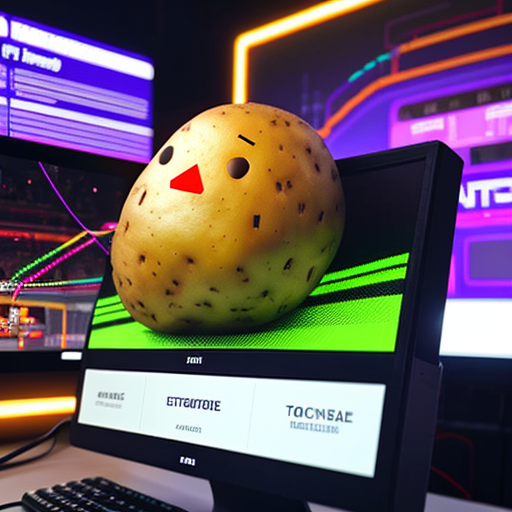In recent years, the world has witnessed a rapid advancement in technology. From smartphones to virtual reality headsets, our lives have become intertwined with electronic devices that make our daily tasks more accessible and efficient. However, as we strive for innovation, we often overlook the potential of everyday objects that surround us.
One such object is the humble potato – yes, you read that right!
Potato farmers of Reddit, have you ever imagined a world where potatoes are not just used for our meals but also as an essential component in computing technology? Well, thanks to recent breakthroughs in electrochemical computing, this idea might become a reality sooner than we think.
Electrochemical computing is a new approach that uses chemical reactions and electrodes to perform computations instead of the traditional binary system of electronic devices. This technology has proven to be energy-efficient and can even function underwater, making it an ideal candidate for transforming potatoes into functional computers.
Imagine a world where your laptop, phone, or gaming console is powered by a potato! Sounds absurd? Well, with the help of electrodes inserted into the potato, it can become a power source for these devices. The potato’s starch molecules can store electrical energy and release it when needed, making them an ideal candidate for this purpose.
So, what operating system would a potato-based computer use? Given the unique nature of this device, a customized version of Linux seems to be the most appropriate choice. With its open-source nature and flexibility, Linux can easily adapt to the specific requirements of the Potatoputer, making it accessible and user-friendly for everyone.
Now, let’s talk about games! While traditional video games might not run smoothly on a potato-based computer, there is potential for unique and innovative games that can be designed specifically for this platform. Imagine playing a puzzle game where you must manage the potato’s energy levels to solve increasingly complex challenges or a racing game where you control a potato on a mission to become the fastest spud in town!
While the idea of a Potatoputer might seem far-fetched, the potential benefits cannot be ignored. The use of potatoes as a computing device could lead to a more sustainable future where technology relies less on non-renewable resources and more on natural alternatives. This shift in mindset can pave the way for a greener and more environmentally conscious society.
In conclusion, while the feasibility of a potato-based computer with electrodes may seem outlandish, it opens up a new realm of possibilities for technological innovation. The Potatoputer could be the catalyst for a revolution in computing technology that prioritizes energy efficiency and sustainability. As we continue to push the boundaries of what is possible, who knows what other everyday objects might hold the key to our future?






Leave a Reply